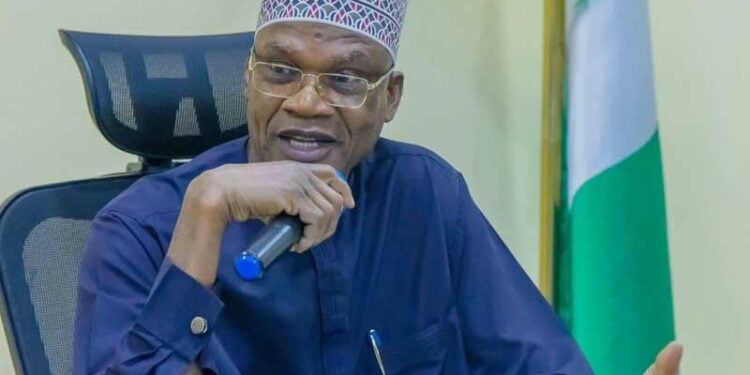Following Professor Tahir Mamman’s recent dismissal, Nigeria’s education ministry faces a critical transition as Tunji Alaussa and Suwaiba Ahmad are set to step in as the new ministers of education, facing high expectations and pressing responsibilities.
Appointed in August 2023, Mamman was removed in a cabinet reshuffle by President Bola Tinubu, who also reassigned Yusuf Sununu, the Minister of State for Education, to the ministry of humanitarian affairs and poverty alleviation.
This overhaul marked a fresh beginning for the ministry of education.
As Alaussa and the minister of state for education, Ahmad prepare to take office, the education sector is grappling with deep-rooted issues including inadequate funding, Academic Staff Union of Universities (ASUU) and other Union’s strike, teacher shortages, and a curriculum that requires modernisation, amongst others.
With Mamman’s exit, many initiatives he championed may face delays or reevaluation.
Key Tasks Awaiting The New Minister
With over 10 million out-of-school children, innovative, community-based approaches are needed to bring these children back into classrooms. Addressing cultural, economic, and regional barriers to education will be essential in tackling this crisis.
Stakeholders also stressed the importance of continuing reforms in tertiary education to resolve frequent disruptions from strikes.
Building on Mamman’s renegotiation efforts with the Academic Staff Union of Universities (ASUU), the new minister is tasked with finding sustainable funding solutions and improving lecturers’ welfare.
It would be recalled that Mamman created a committee to renegotiate long-standing agreements with ASUU to reduce frequent strikes and address lecturers’ concerns regarding pay and working conditions.
Stakeholders have also said investing in teacher training and enhancing school facilities will be essential. Although budgets have risen in recent years, they are still insufficient to meet the needs of a rapidly growing student population.
A pressing task, they said will be to advocate for better financial support for the education sector and seek out partnerships with both local and international agencies for funding and expertise.
Speaking to our correspondent, an educationist, Kelvin Isaac the new minister might consider exploring alternative funding models, such as partnerships with private companies and alumni donations.
Additionally, he said “Strengthening staff welfare and communication channels between university staff and government bodies could prevent future strikes, which have plagued Nigeria’s tertiary institutions for years.”
Also Millions of Nigerian students reportedly graduate without fundamental literacy and numeracy skills. The new minister will need to focus on elevating teaching quality, expanding teacher training, and ensuring adequate learning resources are accessible across all levels, according to the experts.
Furthermore, despite modest budget increases, funding remains insufficient to meet the needs of a growing student population. Advocating for more robust financial support and exploring partnerships with private companies and international agencies will be crucial to achieve long-term improvements in educational infrastructure.
Under Mamman’s leadership, Nigeria planned to introduce 15 new vocational trades into the basic education curriculum, such as digital literacy, IT, and robotics.
Scheduled for full implementation in January, this modernised curriculum aims to equip students with skills for a dynamic job market.
Alaussa will therefore, need to ensure this curriculum overhaul proceeds on schedule to enhance student employability and reduce youth unemployment.
According to Abuja-based teacher Isaac Moji, “Nigeria’s curriculum is often criticised as outdated. For our students to compete in today’s job market, it’s vital that the new education minister follows through with the planned January implementation.”
He also called on the new Minister to
resolve the diplomatic issues for Nigerian students abroad, created by the former leadership for Nigerian students studying internationally, with some facing issues related to funding and accreditation.
“””



